Eleven years ago this next week my husband, Tom Douglas, and I purchased 20 acres in Prosser with the notion of having a sunny second home to escape the sometimes (sometimes?) drizzly Seattle. Being closer to my family was an added attraction as my parents and only sister had relocated to Prosser a few years earlier. We spent a few years remodeling, landscaping, visiting lots of wineries and reading novels by the pool.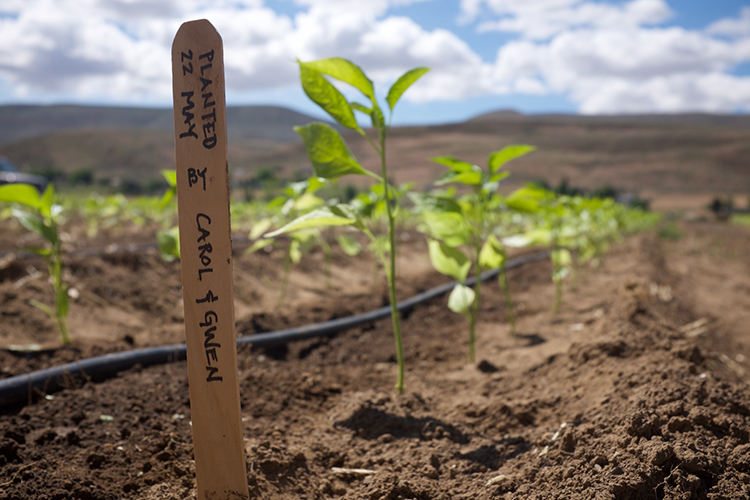
Then my stepmother, Sharon, and I planted a couple tomatoes and a few peppers. Just for us on a little patch of barely tillable ground. The next year we planted just a few more and then, surprise, there was a little excess. Those beautiful extra tomatoes ended up at our restaurant the Dahlia Lounge. And then I was hooked. After that came a tractor, and irrigation pipes and miles of drip hose. And then six years ago a farm manager, Dev Patel, who along with five amazingly capable women keep this place …well, growing.

As a longtime restaurant owner, I have been approached for advice over the years from many, many wannabe restaurateurs. We have given encouragement, financial guidance and supplier information and sometimes even invested. I have sometimes smiled at their naivety, at just how much they don’t know about what they are in for. No one believes they will be cleaning the bathrooms at 2:30 am or that on Saturday afternoon two employees will call in sick right before the doors open. No one wants to be disillusioned.
And neither did I, but over the last six years I have had to come face to face with my own naivety. Putting in a six acre farm to supply the restaurants in Seattle with ultra-fresh organic vegetables seemed like such a glorious calling. I had always been a great backyard gardener, I could and did grow almost anything. My mother had a vibrant, enviable pea patch for years in Seattle’s Interbay neighborhood. My Italian grandmother who had homesteaded in Northern Idaho had a very large kitchen garden behind her house in Browne’s Addition in Spokane. My Greek grandfather’s tomatoes in Warden, WA were famous for their vigorous growth and sheer abundance. I had been nurtured by all these wonderful gardeners and was a successful gardener myself and I knew Eastern Washington. Building a farm seemed like a shoo-in.
Well, this is actually what I didn’t know about six years ago…..
Sage rats. Swarming, stubborn, voracious varmints are thoroughly enjoying the buffet I provide for them each year. Last year they ate 1000 row feet of sweet peas; a single one was never picked. This year while they left the peas alone they delightedly filled up on a hundred cucumber starts.
Bind weed. Two years ago, I had none, this year I am afraid to stand still for too long lest it wraps around my ankles. It is trying diligently, and somewhat successfully to strangle the pepper plants.
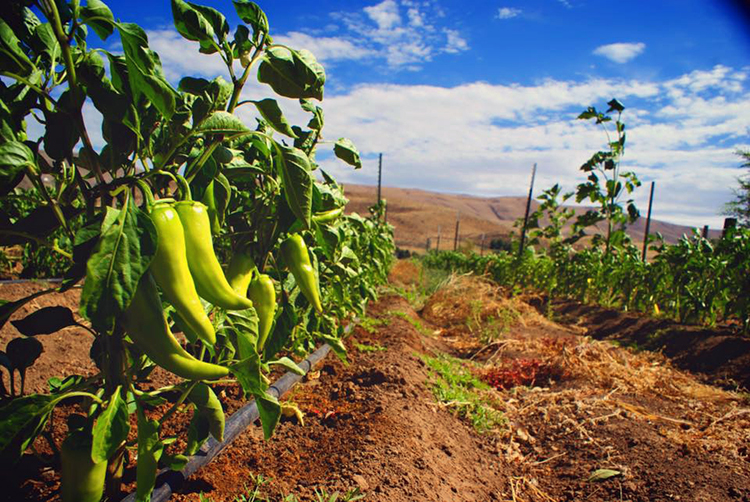 Leaf hoppers. Lush, green, tenderly nurtured tomatoes look vibrant and amazing one afternoon then shriveled and yellow by the next morning. Having started them seed by seed in the tiny greenhouse in February, it is crushing to have to pull up the fully grown plant months later.
Leaf hoppers. Lush, green, tenderly nurtured tomatoes look vibrant and amazing one afternoon then shriveled and yellow by the next morning. Having started them seed by seed in the tiny greenhouse in February, it is crushing to have to pull up the fully grown plant months later.
Irrigation. Inevitably the irrigation supply will be shut down for repair for several days when it is 105 degrees every day that week.
Heat/wind. Having grown up in Eastern Washington, I was fully prepared to work in the early morning hours to avoid the afternoon heat. What I didn’t expect was that tomatoes will drop all their flowers when it tops 100 degrees and have to begin again when it cools down, setting harvest back by weeks. Or the tall, trellised, fully loaded green beans will be shredded by 60 mile per hour winds that come off the Horse Heaven Hills.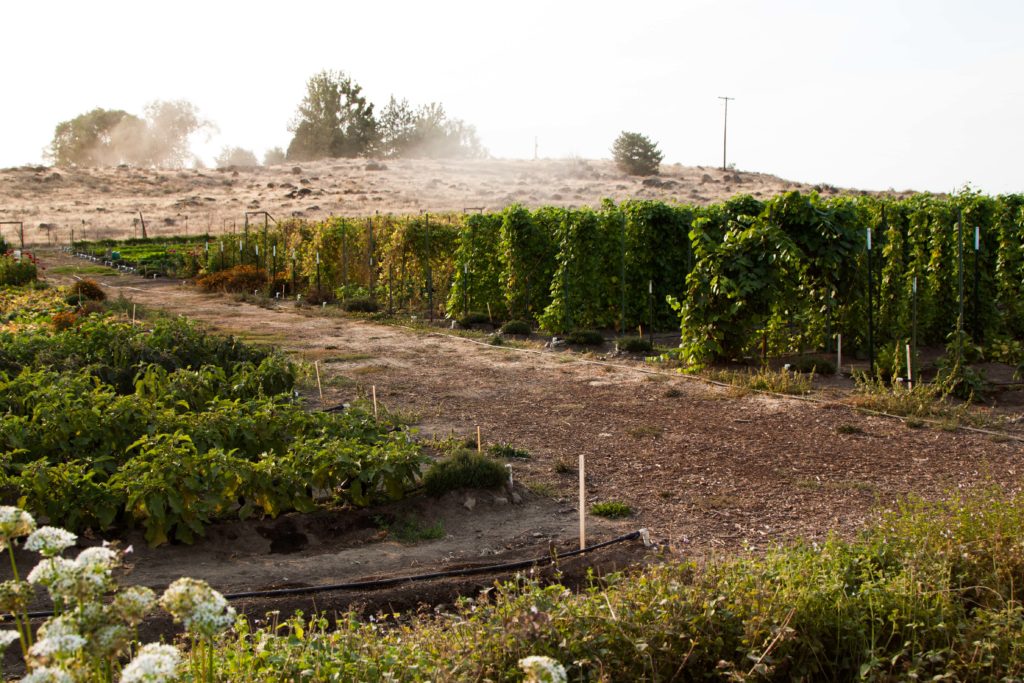
Tractors. They break down. Quite regularly actually. Enough said.
How do I feel about farming now? I definitely do still love it but now with knowing caution. The initial enthusiasm has been tempered with reality. I know that along with the pride and satisfaction of bringing several hundred pounds of perfectly ripe, organic melons to the restaurants in Seattle will be balanced with the frustration of losing 200 tomatoes to some new blight of the year. The joy of being in the steamy, warm greenhouse in late January, while there is still snow on the ground, will be evened out by the exhaustion of picking all the fall delicata squash at 10:00pm at night with headlamps on before the unanticipated cold snap settles in the Yakima Valley.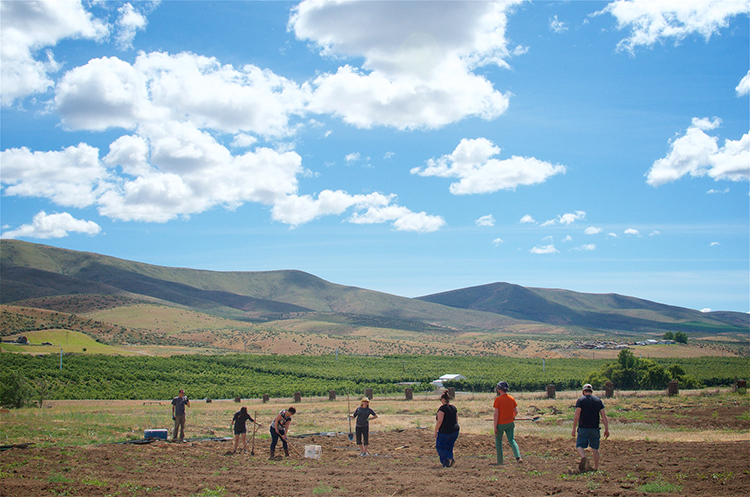
But I have also learned (albeit, admittedly slowly) and each year I feel a little more confident. Being intuitive is critical, paying attention and observing closely is vital. So much of farming is out of your control that being able to pivot quickly and adapt is a necessity. Watching the weather, length of daylight, soil temperature and wind patterns becomes a bit of an obsession. Being so in touch with the mercurial patterns just deepens the satisfaction of harvesting those hundreds of perfect cucumbers when you know how much could have gone wrong but didn’t.
I have also learned that farmers complain (bitch), a whole lot, it seems. But commiserating with fellow farmers in the valley is a favorite pastime that has led to some wonderful new friends. The camaraderie, the exchange of ideas, the sharing of woes and triumphs are sincere and sustaining, not to mention educational. I so look forward to picking up blueberries from the Crawford’s, cherries from the O’Brien’s and grapes from Chinook just to hear how they fared through the windstorm the night before or are preparing for the coming heat wave.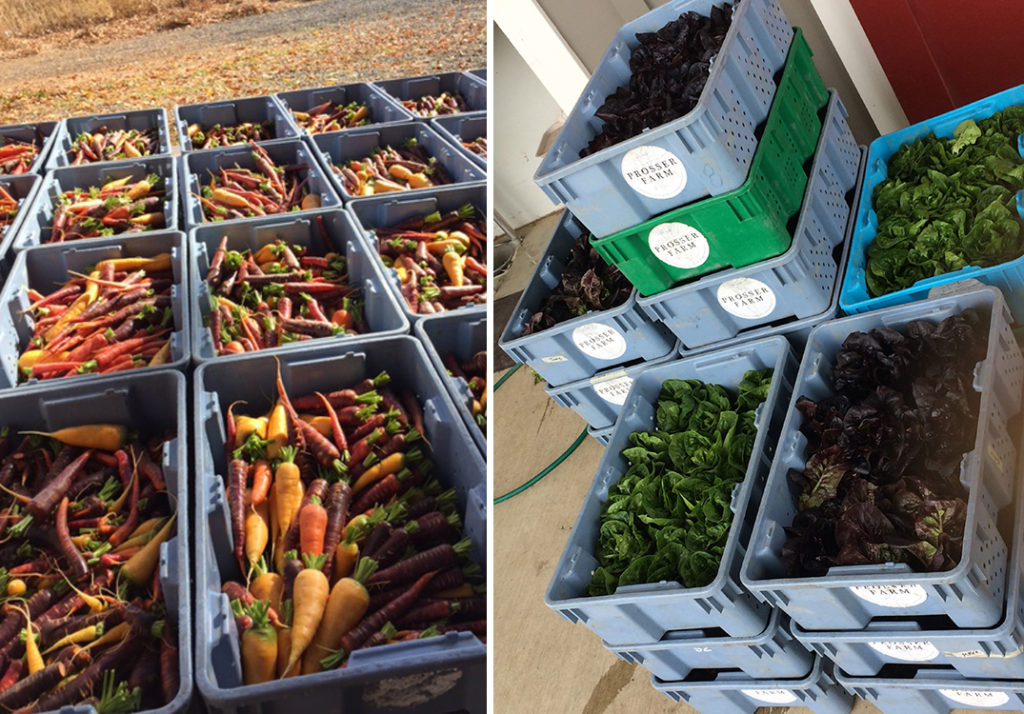
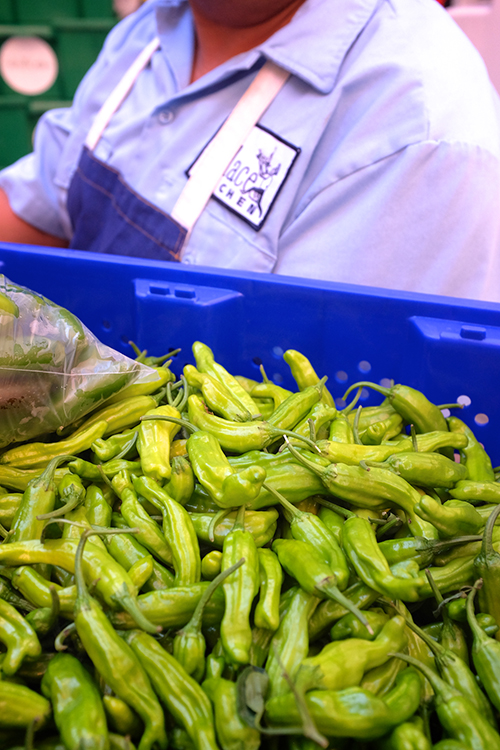 I have driven over from Seattle every week for years now, sometimes twice a week and I am still always awed and humbled at the beautiful bounty of this valley land, of the thousands of acres of orchards and hops and vineyards, of the lime green and then dusty brown of the Rattlesnake’s and Horse Heaven Hills and the meandering, languid Yakima River.
I have driven over from Seattle every week for years now, sometimes twice a week and I am still always awed and humbled at the beautiful bounty of this valley land, of the thousands of acres of orchards and hops and vineyards, of the lime green and then dusty brown of the Rattlesnake’s and Horse Heaven Hills and the meandering, languid Yakima River.
Farming allows me time for reflection and gives me a quiet, powerful peace in my heart that I wouldn’t trade for anything. Well, maybe a bigger tractor….
Jackie Cross is the owner of Tom Douglas Restaurants/Prosser Farm. For seven months out of the year, the farm delivers an average of 1500 pounds of produce every week, which makes up an important part of the ingredients used in their Seattle restaurant kitchens.
All photos courtesy of Tom Douglas Restaurants/Prosser Farm.
Thank you, Jackie, for sharing your journey and passion with rooted!

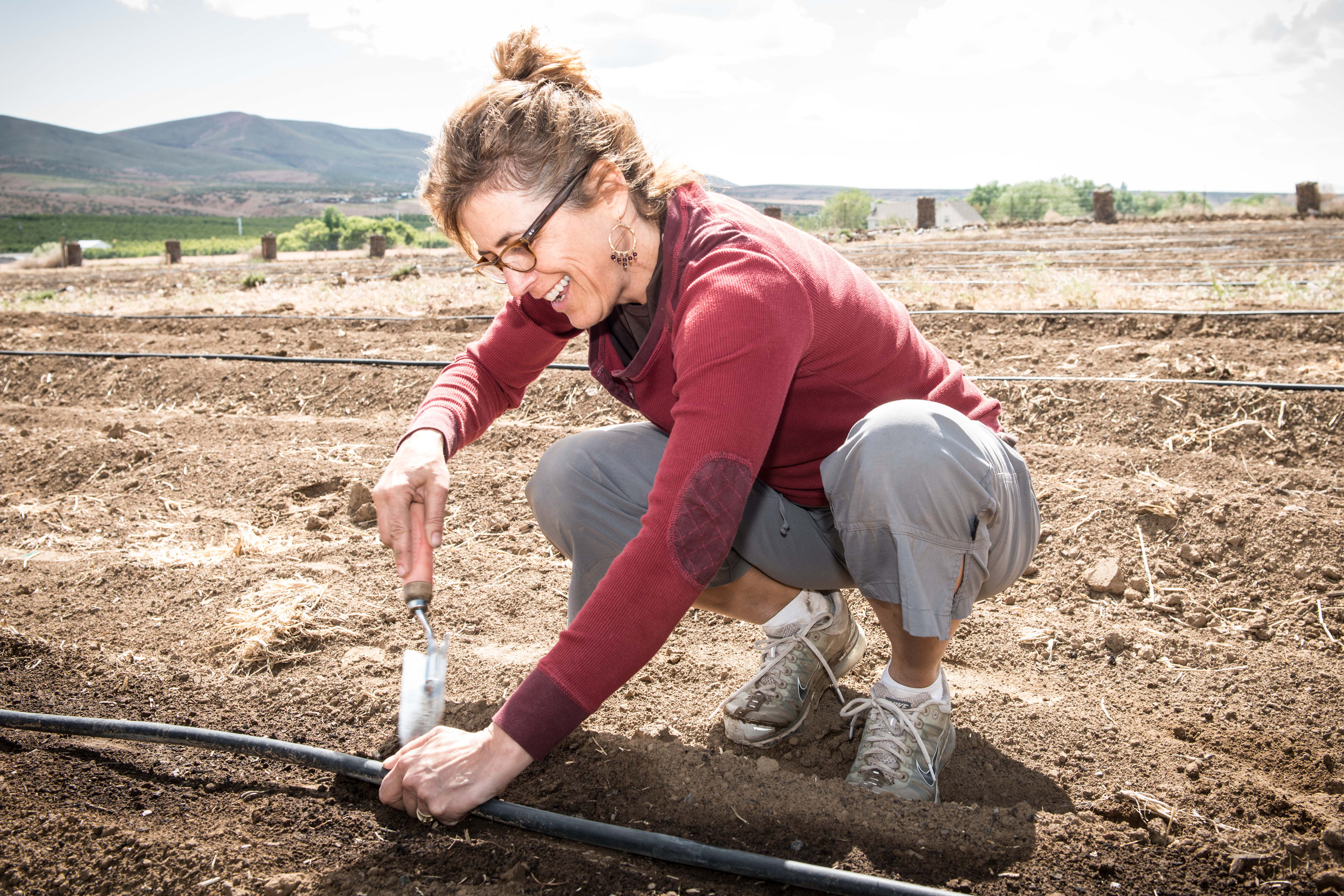





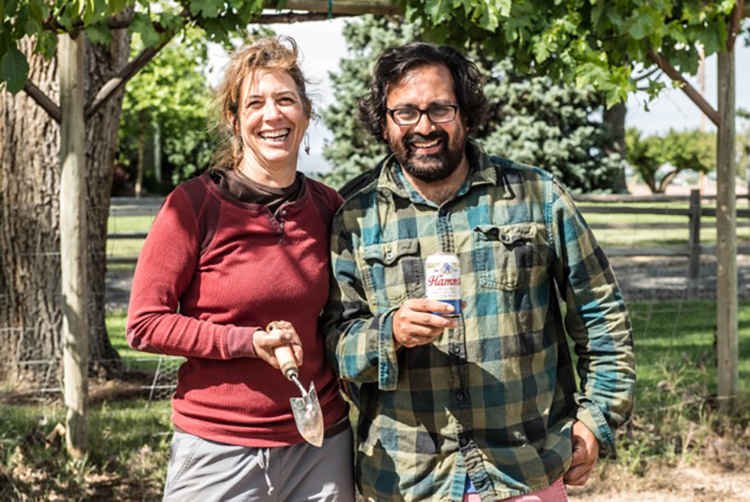
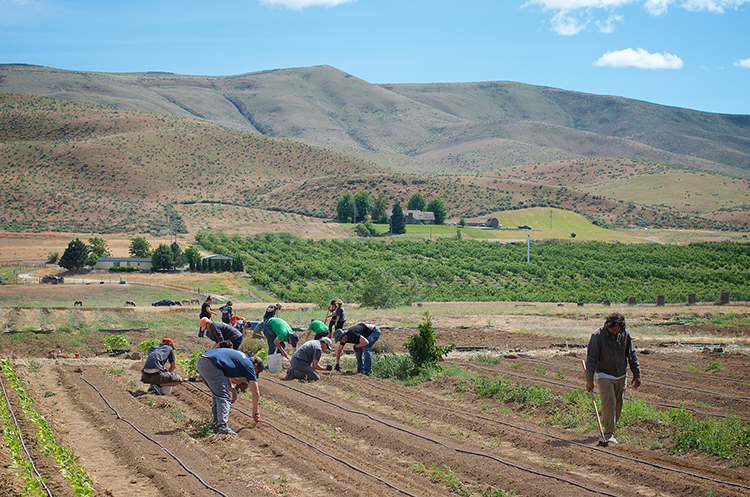
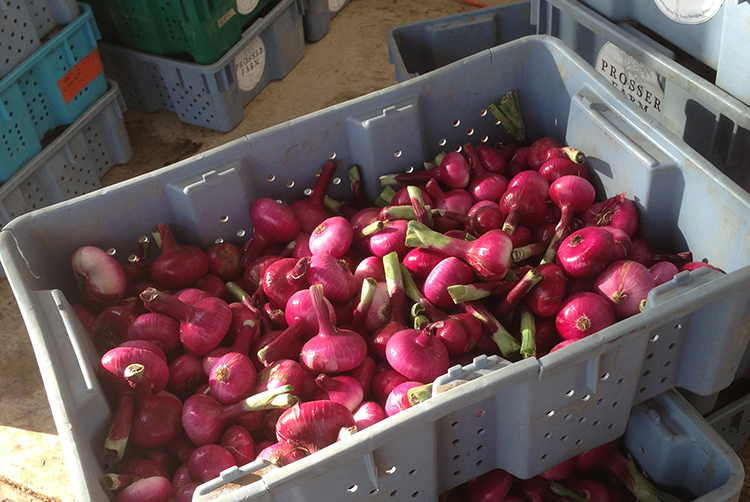
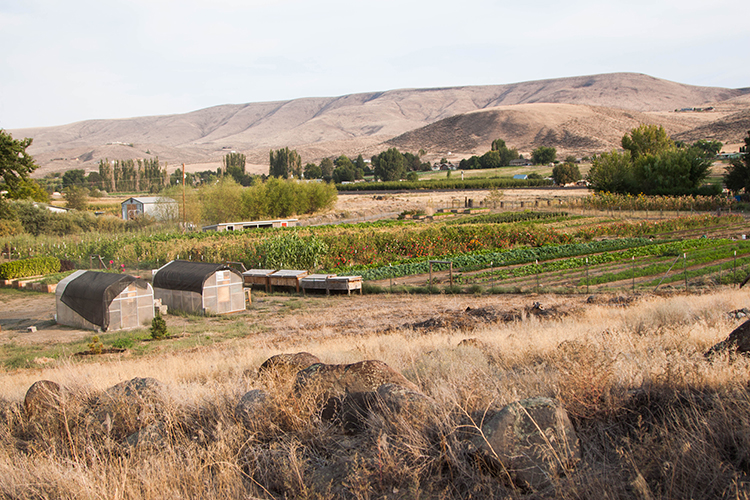
Great story and it gives me not only a bigger appreciation of the Tom Douglas (and Jackie) restaurants I have loved for years in Seattle, but also for our Valley. We live in the midst of such abundant, fertile land.
Love this one!! A good, gritty, honest account of the realities of “farm to table”!
Loved reading about the trials and tribulations associated with farming. I grew up on a farm and understand the time and heartache it takes to be successful. However, when successful, the bounty can be invigorating and pleasing.
Oh yes, Jackie, you have that farmers heart.. I left farming behind ten years ago but I still miss some of those quiet hours, early early in the morning, herding the tractor around and thro the grapes, or out repairing the pipe that was squirting 10 feet in the air, and had been all night…I don’t miss alot of the things you mentioned..mildew in the grapes, frost in the apricots but it all goes together to be called ‘farming’. Well written, well written…Jane
Love this post, Jackie! My secret longing is to buy 5 acres for a food bank garden and spend my retirement there. Having built a smaller production garden, I understand the cycles of production and lost crops, but I wonder if I am truly prepared for a larger scale.
Thanks for sharing!
I loved reading this aloud to my brother as we made the trip home from visiting our mother in Idaho. Our favorite stop is always Prosser. Being a fan of Tom’s weekend cooking show on the radio and he references the farm on occasion, I have often wanted to visit your farm or attend an event (if those are offered). Our Italian grandfather was an avid gardner as well and this was a truly enjoyable read. Thank you.